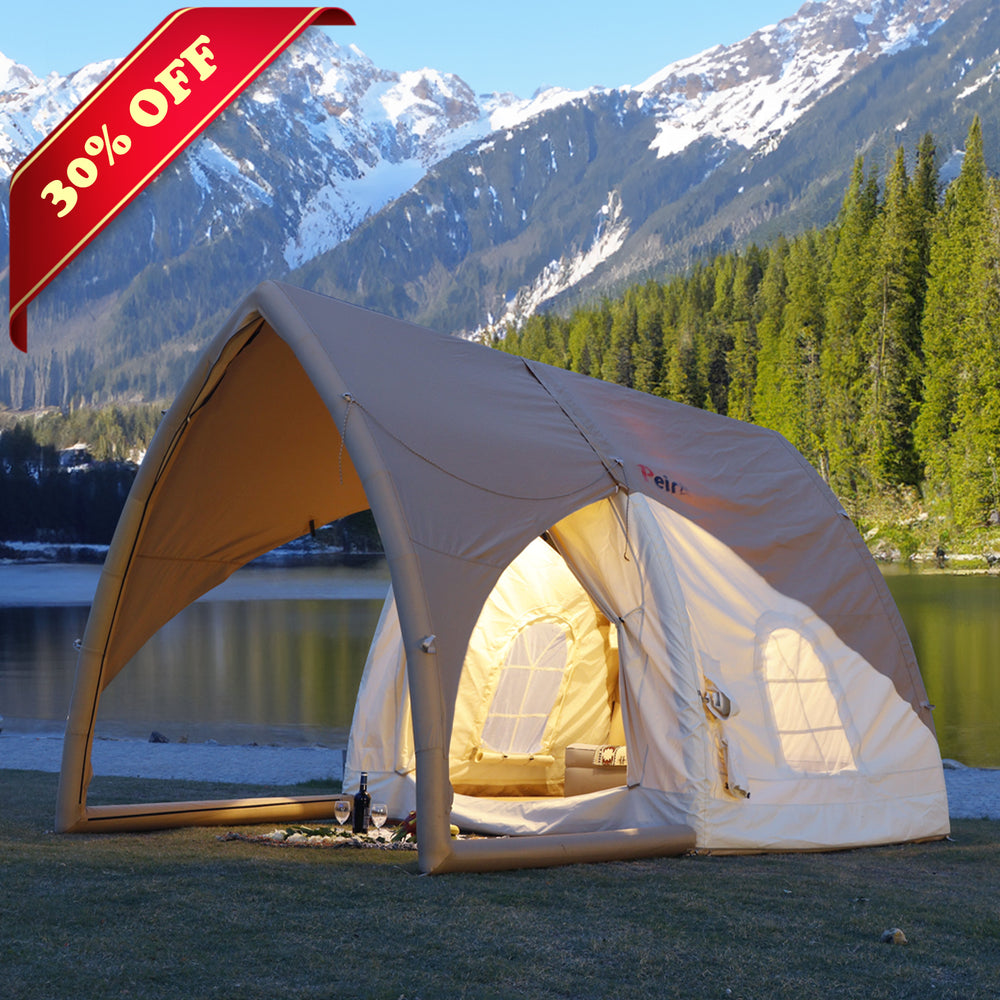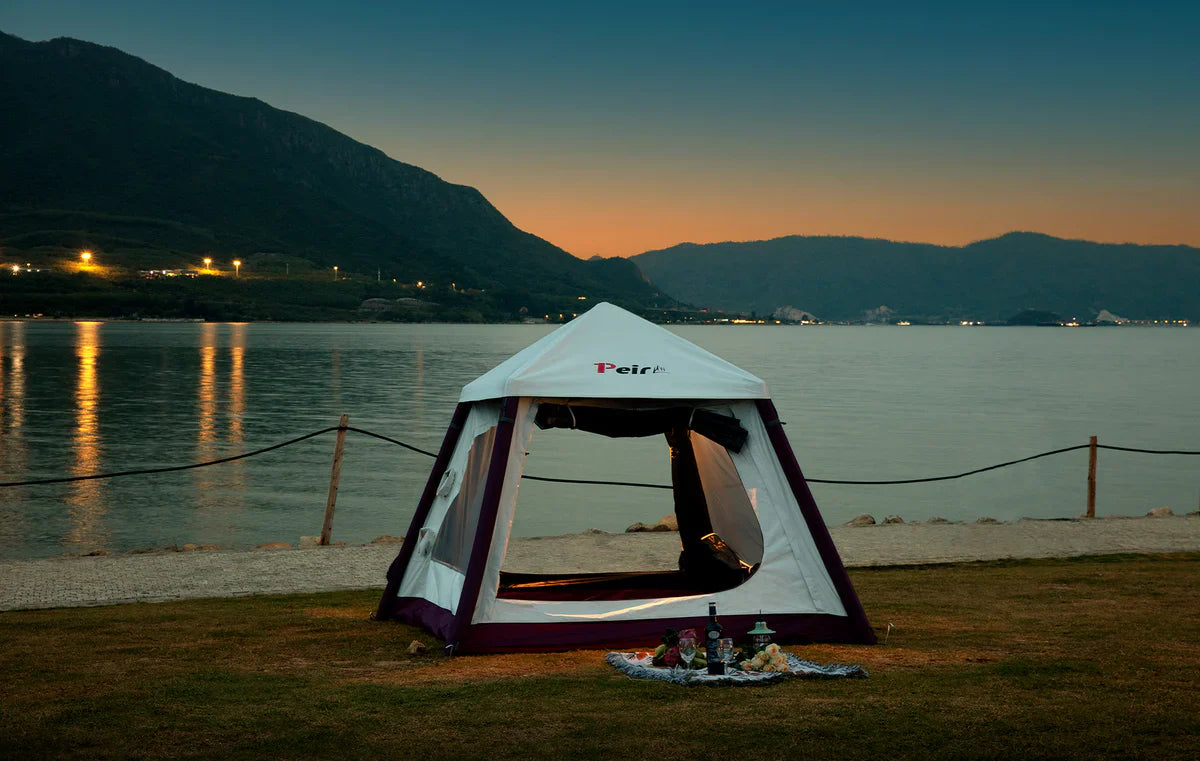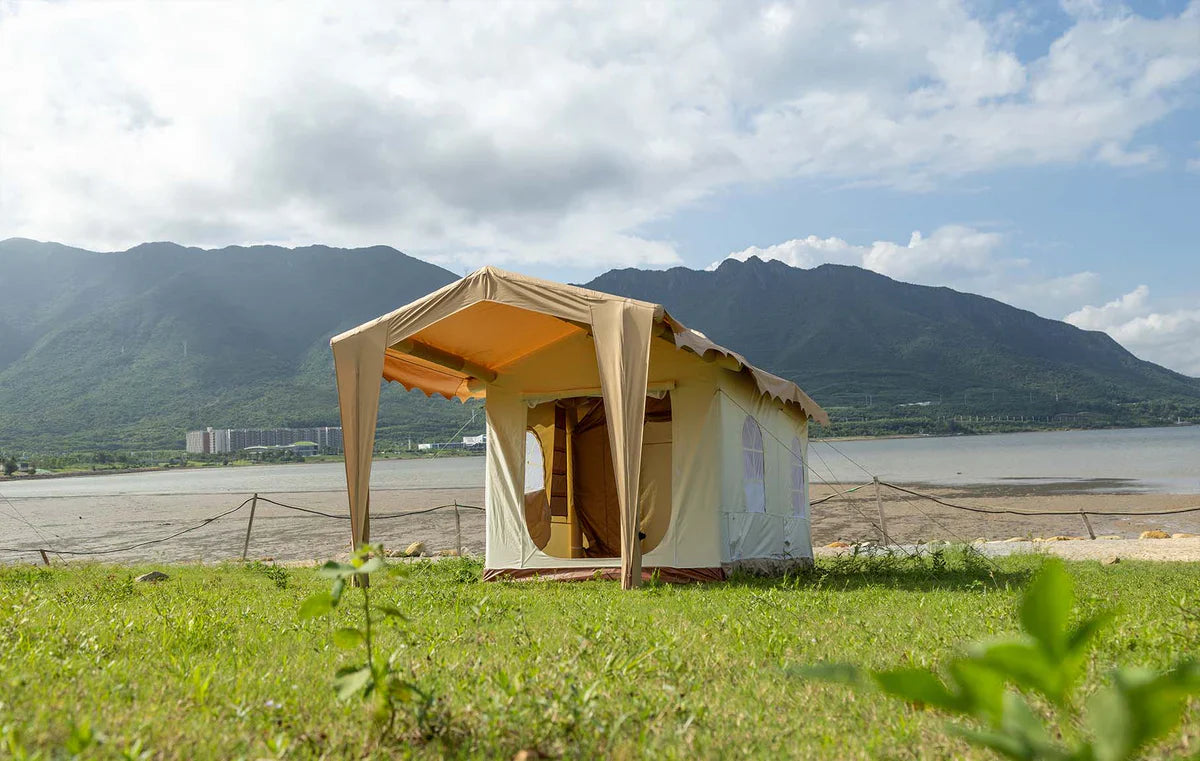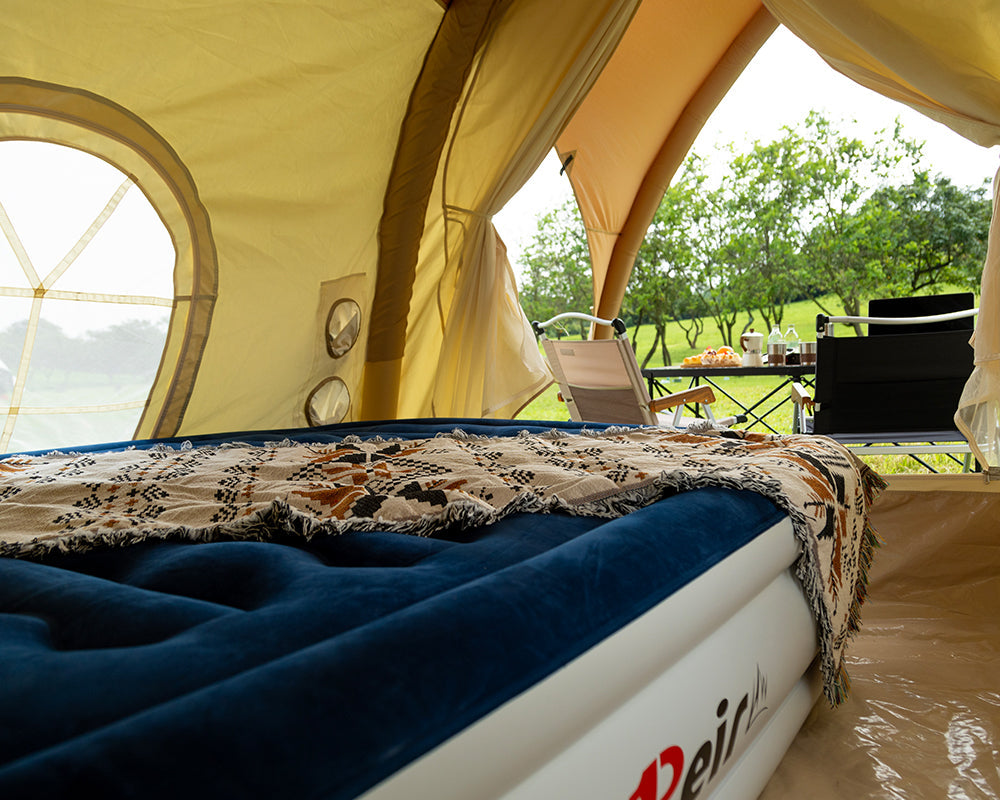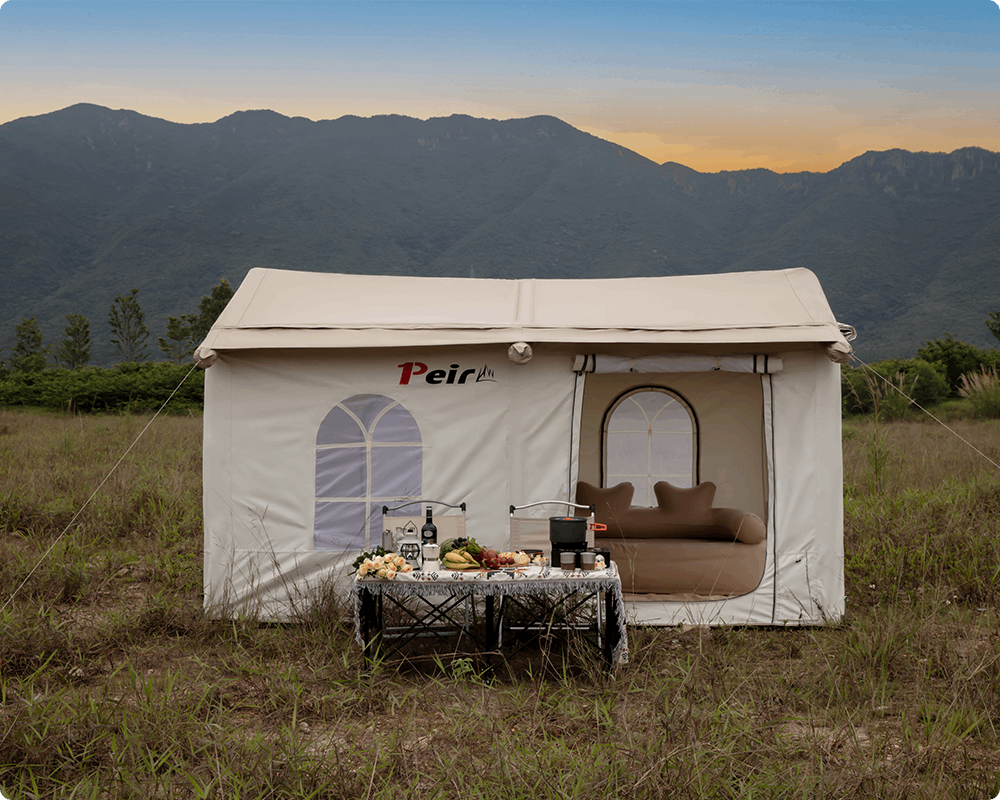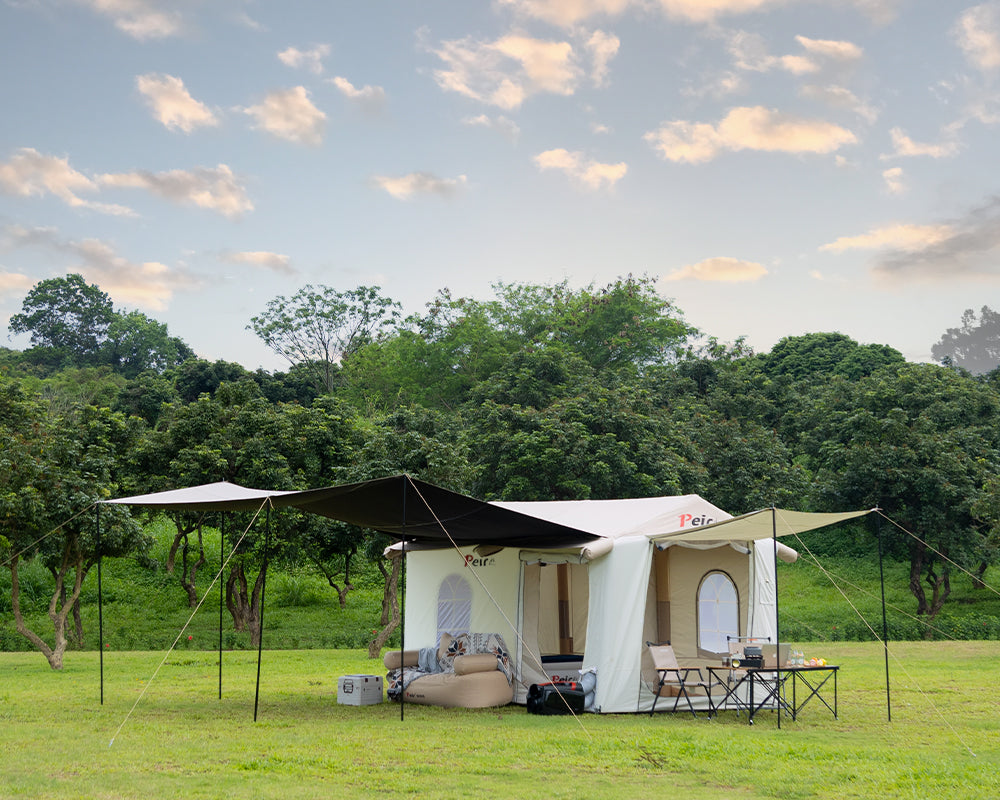Camping in winter is generally all about fun and excitement. But the nights can be a letdown, especially when it is freezing. This is why it is essential to know how to stay warm in a tent when sleeping outdoors with only the stars on your roof.
However, even minor adjustments and shifts can improve the situation. This article will focus on staying warm while camping in a tent. Are you ready to go? Put on your camping gear and prepare for a warm night in your camping tent in winter.
Best 13 Tips to Stay Warm in a Tent in Winter
When heading for winter camping, preparing appropriately to stay warm and have a good time is essential. Below are 13 crucial tips to help you stay warm in your tent and enjoy camping.
1. Layer Underneath, Not Just Over the Top
Insulation isn't only about how many sweaters one puts on when preparing for winter camping. The insulation on the body-worn under the outer garment matters greatly, too. The cold earth absorbs one's heat during the night, and a good roll mat is essential. Further, use a base layer that removes moisture from the skin as the first layer of the skin.
It is common to use insulation layers like fleece or down to maintain warmth. Lastly, choose an outer layer that is both water—and wind-resistant. Wearing thermal leggings, wool socks, and a sleeping bag liner can make a big difference. It's a rational approach that helps keep every part of you warm during cold weather camping in the tent.
2. Use a High-Quality Sleeping Pad
A sleeping pad also comes in handy while camping during winter. Excessive heat loss is possible due to cold surfaces and pavements, and a sleeping pad can prevent this. Focus on a high R-value mattress pad, which means it is insulative. The greater the R-value, the warmer it will keep you when sleeping on cold ground. You could also opt for an inflatable pad or use a foam pad and cover it with an inflatable sleeping pad to add warmth. Thus, a well-insulated sleeping pad keeps you warmer, minimizes heat loss, and increases tent comfort.
Our camping self-inflating sleeping pad is made of 30D stretch fabric and a TPU-sealed composite layer, making it suitable for all seasons. It provides excellent insulation, even in extreme winter conditions.
3. Shake Your Sleeping Bag for Maximum Warmth
Give your sleeping bag a good shake before tucking yourself in for the night. Looking back at it, lifting the bag one more time and shaking it before sleeping is a good idea. This facilitates the even distribution of the insulation within the bag, which can retain more heat. Though designed to last long, the sleeping bag may lose its effectiveness if not adequately cared for.
Accordingly, shaking it out helps puff up the fibers, which means more trapped air pockets inside that serve as insulators. Hence, this simple step adds considerable warmth to the sleeping bag, making it safer and easier to sleep in the tent. Fluff your bag every night for the best insulation and warmth potential.
4. Avoid Tucking Your Head Inside Your Sleeping Bag
Some people feel the need to put their heads in the sleeping bag for warmth, even if it's impractical. However, this can have the opposite effect by making you colder. Sleeping bags help keep unwanted moisture outside; however, this is not true when the head is inside the bag.
Wear a hat or balaclava to keep your head warm and moisture from escaping. Some sleeping bags mask the head with a hood; wear it, but do not cover your face inside the sleeping bag. This way, the insulation stays dry and retains its heat-containment capabilities throughout the night. Our sleeping bags are suitable for three seasons of use, with a temperature range of 41℉-68℉(5℃-20℃).
5. Let Nature Take Its Course
Pay attention to your body's signals when camping in winter, especially for basic needs – like urinating at night. If you have to urinate, do not wait until the morning to do it. Your body uses extra energy to keep urine warm, which could otherwise help you stay warm.
Therefore, keep a water bottle in your tent to keep you warm. Drinking a lot of water is essential as if the body is dehydrated, its temperature control may also be compromised. Follow nature's call to minimize heat loss during your winter camping.
6. Choose the Right Size Tent and Sleeping Bag
Choosing the right tent and sleeping bag is essential to staying warm during winter camping. An overly large tent has too much room and can be difficult to heat up and maintain warmth. Select a tent appropriate for the number of people so that the unused area is as small as possible.
We provide tents of different sizes, suitable for 2-3 people inflatable cabin tents, 3-4 people inflatable house tents, 4-8 people inflatable camping tents, 4-8 people luxury camping tents, you can choose according to your needs.
Also, make sure that your sleeping bag is of the correct size. A sleeping bag that is too giant can create an air pocket that allows cool air to diffuse into the sleeping bag. If you want to obtain the best insulation, look for a sleeping bag that is rated for the temperatures you expect. A proper fit can indeed make a significant difference in the retention of body heat.
7. Use Hand Warmers Inside Your Sleeping Bag
If it is very cold and you want extra warmth, put hand warmers in your sleeping bag. These are small and light and can provide continuous warmth for hours, greatly improving your comfort.
Place the hand warmers on areas of the body that attract heat, like the chest and abdomen. Adhere to the manufacturer's recommendations. It's straightforward, but it'll make sleeping bags more efficient and allow for more comfortable sleep even in the coldest temperatures.
8. Avoid Sleeping in All Your Clothes
Trying to sleep in all your clothes might seem reasonable if your intention is to keep warm. But this would, in fact, make you cold. The more clothes you put on, the less blood circulation you have and the colder you become. In place of wearing many warm layers, wear a few high-quality moisture-wicking layers.
In the evening, when going to bed, wear dry and clean clothes to avoid being moist from sweat. Wearing thermal baselayers, socks, and a hat is also recommended. This way, you insulate your body with a thermal compressive layer, allowing only heat circulation.
9. Properly Vent Your Tent
Proper ventilation is essential to remaining comfortable, warm, and dry when winter camping. Although it may seem counterintuitive, a tent that gets plenty of ventilation helps eliminate humidity. Condensation occurs when moisture from your breath and body sweat accumulates on the tent's surface, making it feel damp inside.
Suppose you open the vents or windows slightly. In that case, this moisture' hot load' can escape into the environment, and the inside will have less moisture. A dry tent is better at holding in more heat than a damp tent. Remember, adequate ventilation is a great way to increase the warmth and comfort of your tent in winter.
10. Turn Your Things Upside Down
Reversing your gear before you go to bed is another helpful measure of staying warm in a tent. Boots, water bottles, and other items are prone to freezing overnight if left outside. However, if you are ever heading off to sleep at a campsite and the temperatures are cold enough, you should turn such items the other way down.
You can easily use them in the morning without worrying about frozen zippers or lids. They end up inside, where they get the utmost warmth. These tips will not only enhance your comfort but also help you stay warm in the cold.
11. Pick a Good Campsite
Selecting the most appropriate campsite for winter camping is essential for warmth. Look for a spot with some natural windbreaks, such as thick trees or large ones. Avoid pitching the tent where it may be too cold or on the edges of hills or mountains in windy places.
Wherever possible, look for a place that gets some sunshine in the early hours to help warm the tent up. When you choose an appropriate and tactically positioned campsite, there are high chances of remaining warm and comfortable in the tent.
12. Enhance Warmth with Space Blankets
When packing for winter camping, space blankets are crucial. These thin, mylar-like blankets have many uses for heat retention and insulation. Place one beneath your sleeping pad to bounce body heat back, or use it along the inside walls of your tent.
Also, you can tuck a space blanket around your body on especially freezing nights to add some insulation. Their material is reflective and thus can conserve heat in the body, which makes one warmer. Using space blankets is a simple and satisfactory way to increase one's comfort and prevent hypothermia when camping in winter.
13. Eat and Drink to Warm Up
Eating hot foods and drinks is a nutritional strategy for staying warm on winter trips. High-quality and high-calorie foods are necessary for the body to produce and sustain energy. Therefore, one must choose warm soups, stews, and beverages like tea or cocoa. Bring a camping stove or thermal and vacuum flasks to cook or heat and eat hot food and drinks.
It is also essential to have light mid-meals, such as nuts or protein bars, before bed to keep the body's metabolism heating. Replacing fluids lost to sweat is also crucial; otherwise, the body will have a reduced capacity to control temperature. UsiTheng warm meals and hot beverages are fun and tasty to defend against the cold.
Myth Busted: Sleeping Naked Makes You Warmer
It's a common misconception that sleeping naked in a tent is warmer in winter camping. Some contend that this will permit the body heat to circulate more quickly in the sleeping bag; however, adequate insulation remains essential. Wear high-quality fabric that wicks out moisture from sweat so that humidity does not compromise your health.
Further, thermal clothes also provide additional protection from cold weather. Instead of heavier clothing, it's wise to put on thin thermal clothing for less weight when getting into a sleeping bag and improving its insulation. The best way to maintain warmth during winter camping is to wear the right clothing, stay dry, and stay properly insulated.
Frequently Asked Questions
How can I stay warm in a tent during winter camping?
Wear multiple layers of clothes and sleeping gear in winter to keep warm in the tent. It is worth investing in a comfortable sleeping pad and secured sleeping bag for cold weather. Use hand warmers and vent your tent for extra warmth. Also, eat warm dinners and lunches so your body heat builds from the inside, and stay in a sheltered area.
What type of tent is best for cold weather?
The best tent for cold weather is a four-season tent designed to withstand bad weather. These tents are made with strong materials, sturdy poles, and a low profile to resist wind and snow. Higher-quality tents are rated well for insulation, utilize waterproof rainflies with little mesh and have some ventilation points.
Is it necessary to use a tent heater while camping?
A tent heater is not essential for camping, but it is a useful tool for extra comfort in winter. When the temperature drops really low, a heater gives off more warmth. Just make sure you are paying attention to the fact that it is safe for indoor use.
Can a space blanket help keep my tent warm?
Yes, a space blanket could also keep your tent warm. It can be placed under your sleeping pad, or you can line the tent's interior with this to complement the insulation. Plus, it's so lightweight and trim that you can easily take it in winter camping gear.






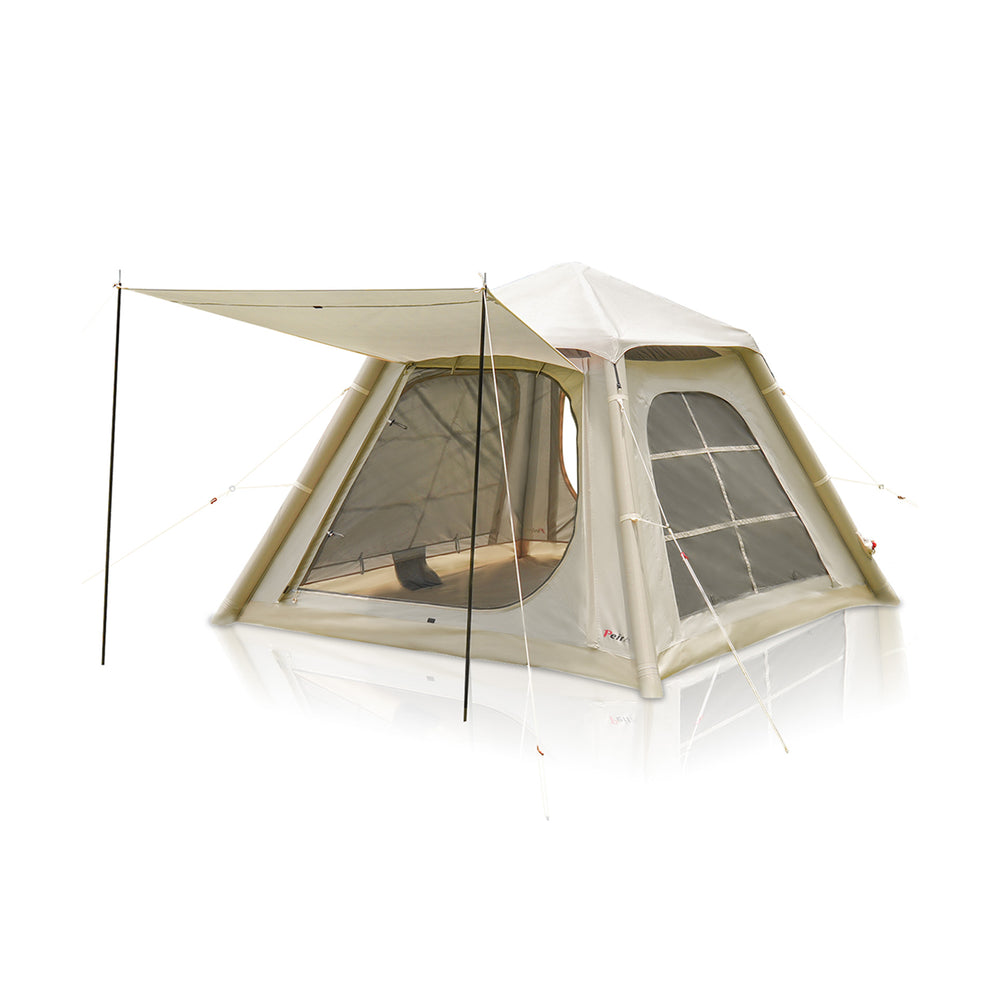
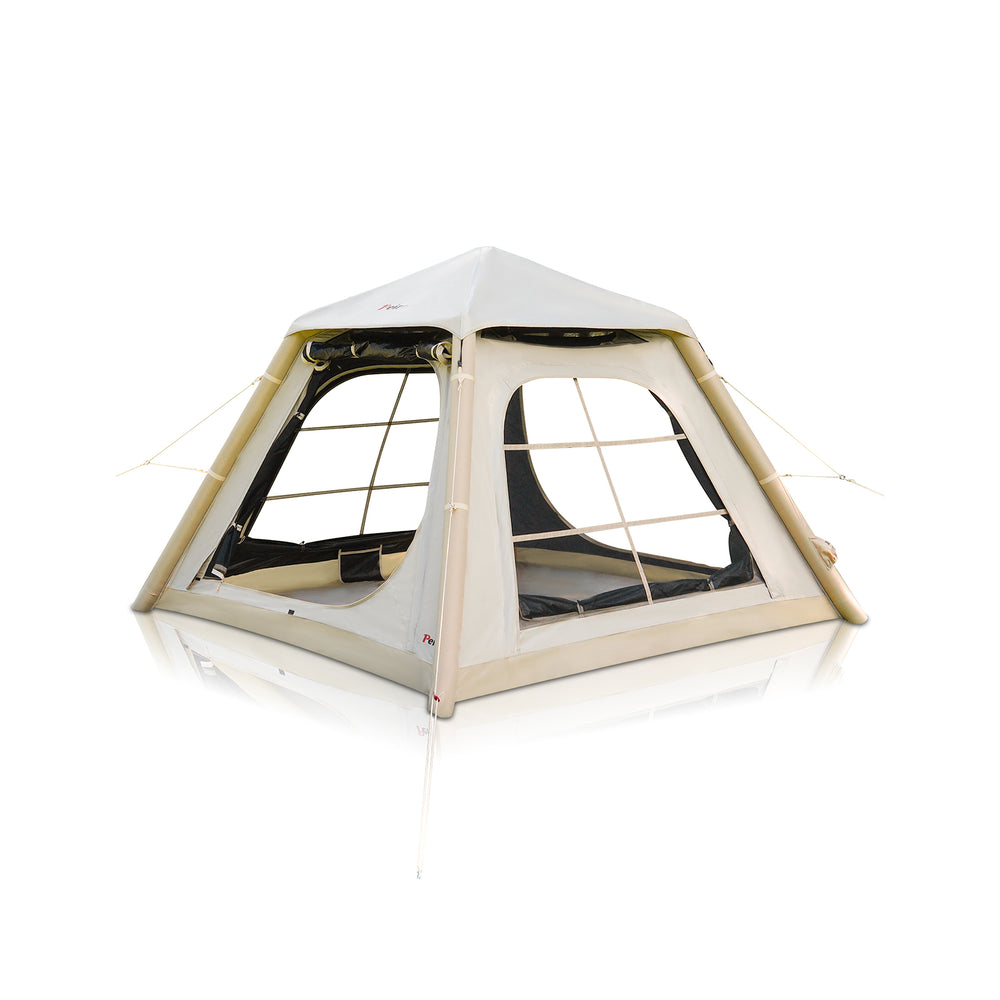
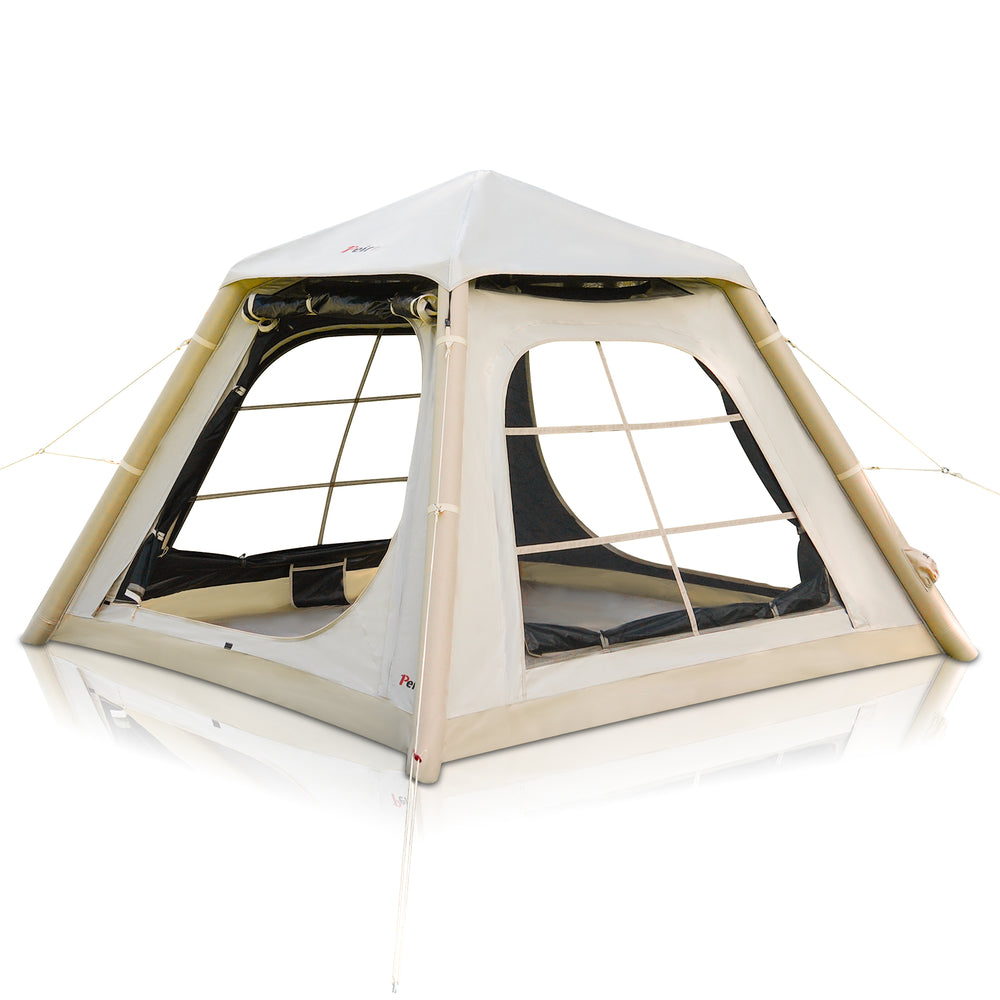
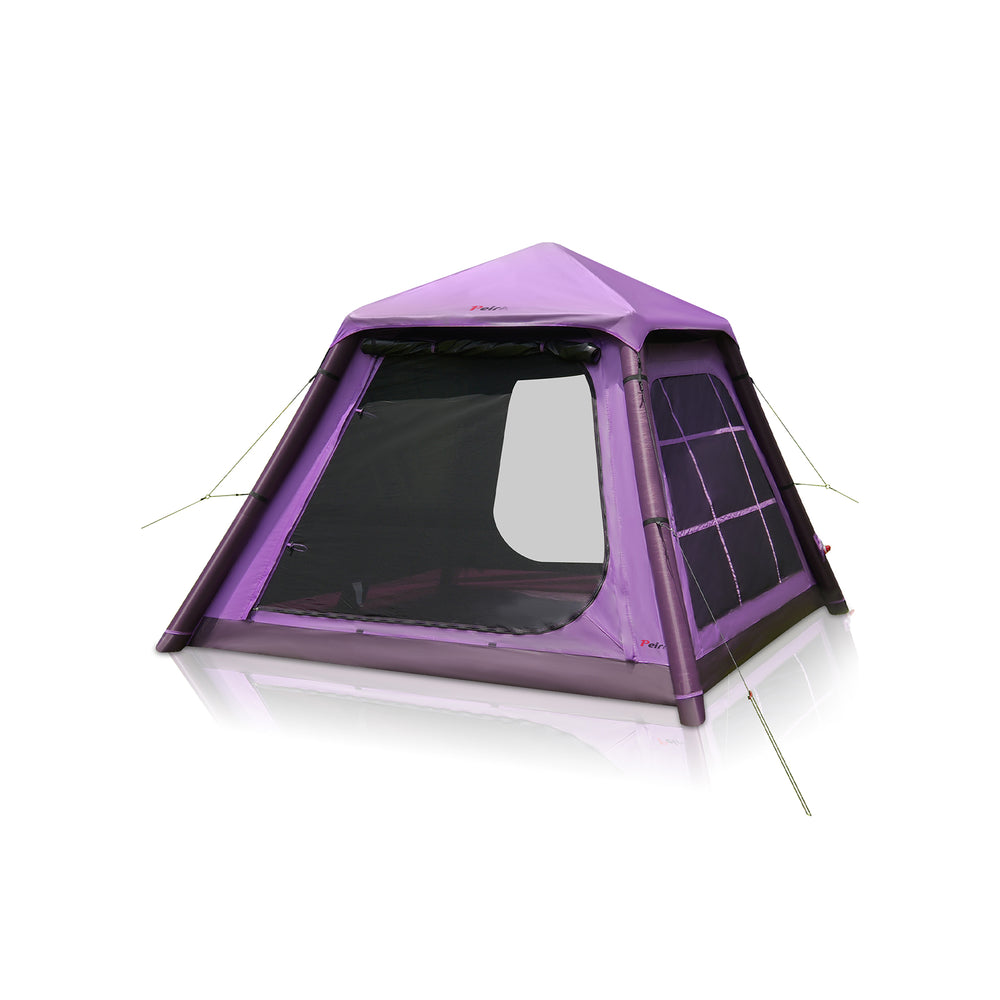


 Peirhw Inflatable House Tent - Starry Night Love
Peirhw Inflatable House Tent - Starry Night Love
 Peirhw Glamping Tents - Friendship Castle
Peirhw Glamping Tents - Friendship Castle
 Peirhw Inflatable Canopy Tent - Adventurer
Peirhw Inflatable Canopy Tent - Adventurer

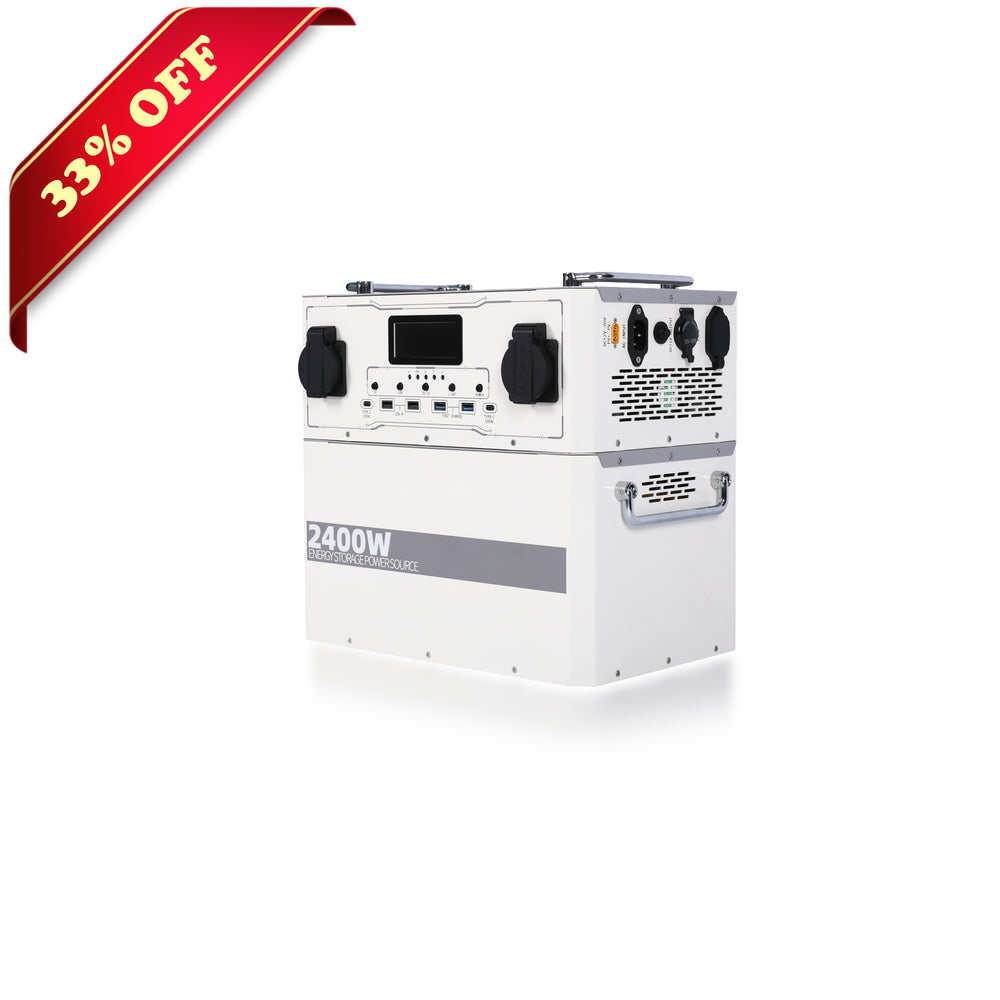
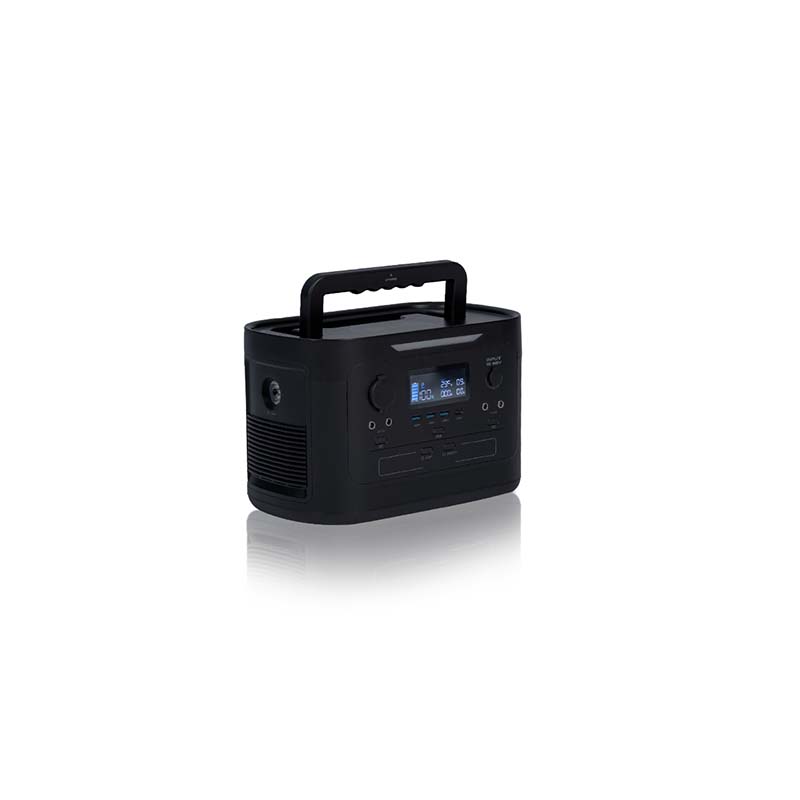
 Peirhw Portable Air Conditioner
Peirhw Portable Air Conditioner
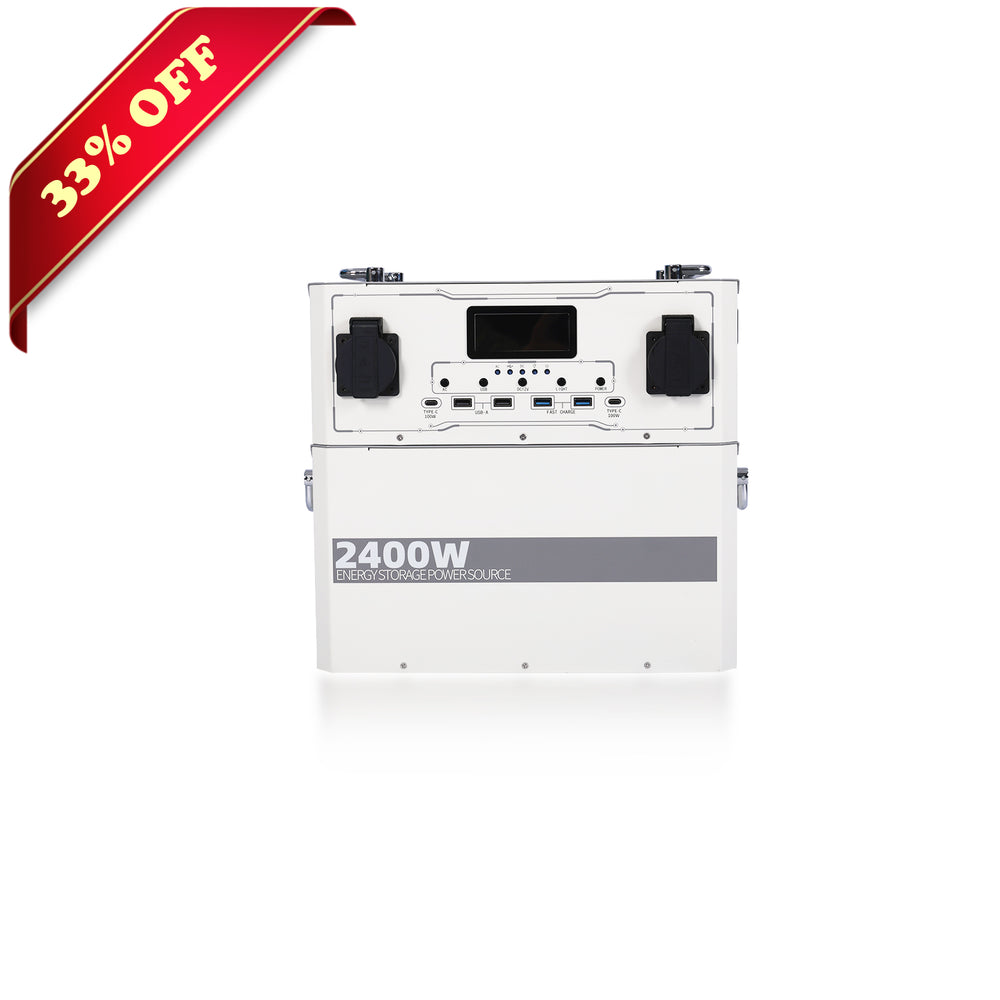 【Advance Sale】Peirhw Portable Power Station 2400W
【Advance Sale】Peirhw Portable Power Station 2400W
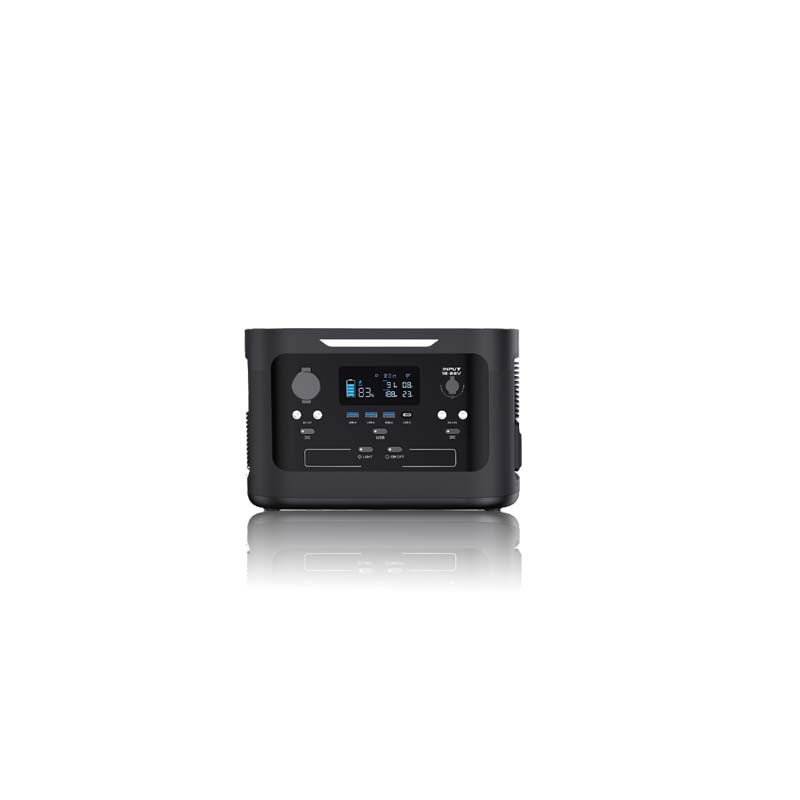 【Advance Sale】Peirhw Portable Power Station 600W
【Advance Sale】Peirhw Portable Power Station 600W

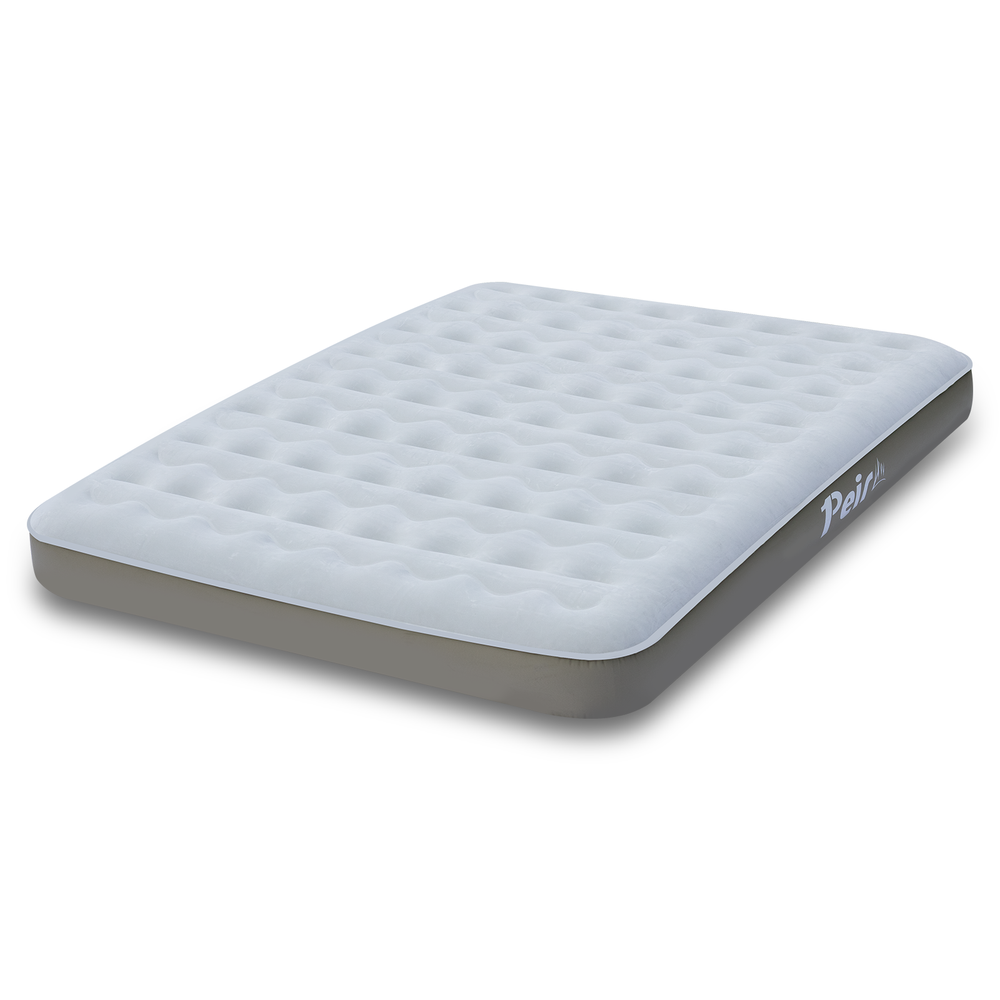



 Peirhw Self Inflating Sleeping Pad
Peirhw Self Inflating Sleeping Pad
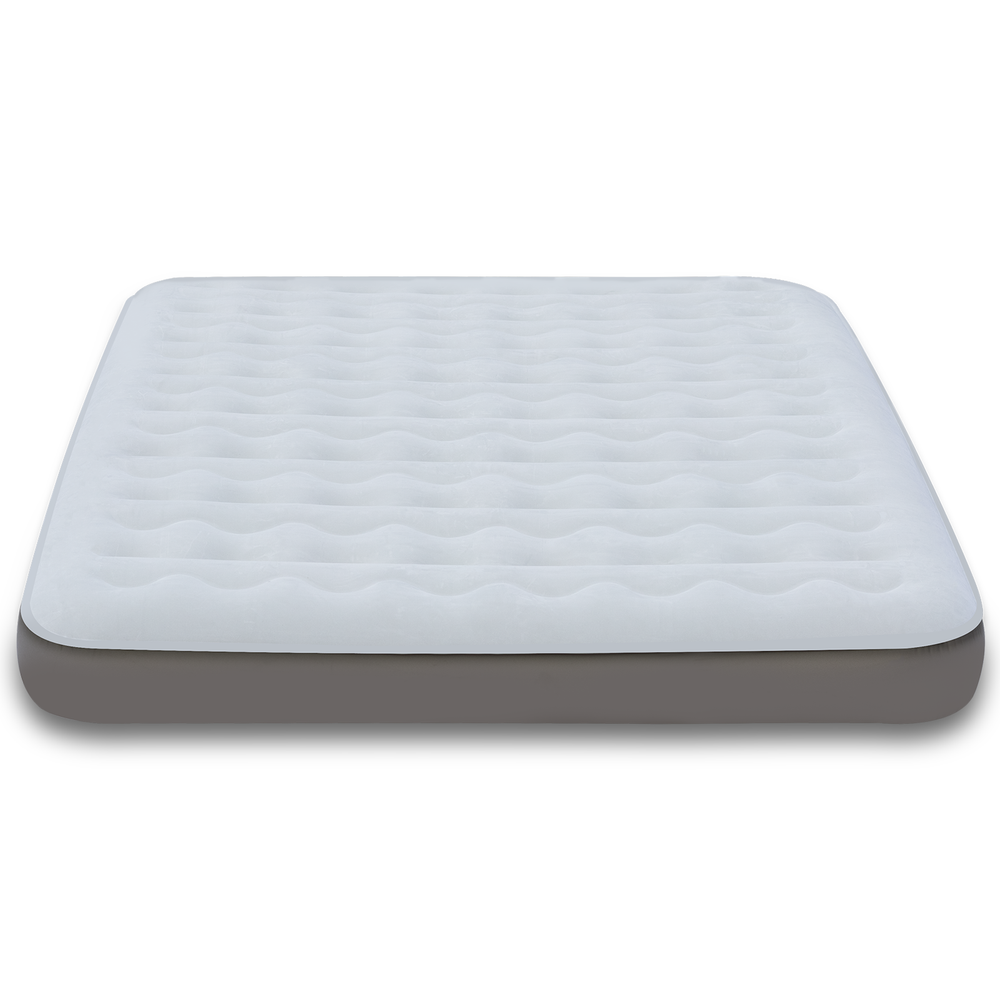 Peirhw Air Mattress (8" Queen Type)
Peirhw Air Mattress (8" Queen Type)
 Peirhw Camping Sleeping Bag
Peirhw Camping Sleeping Bag

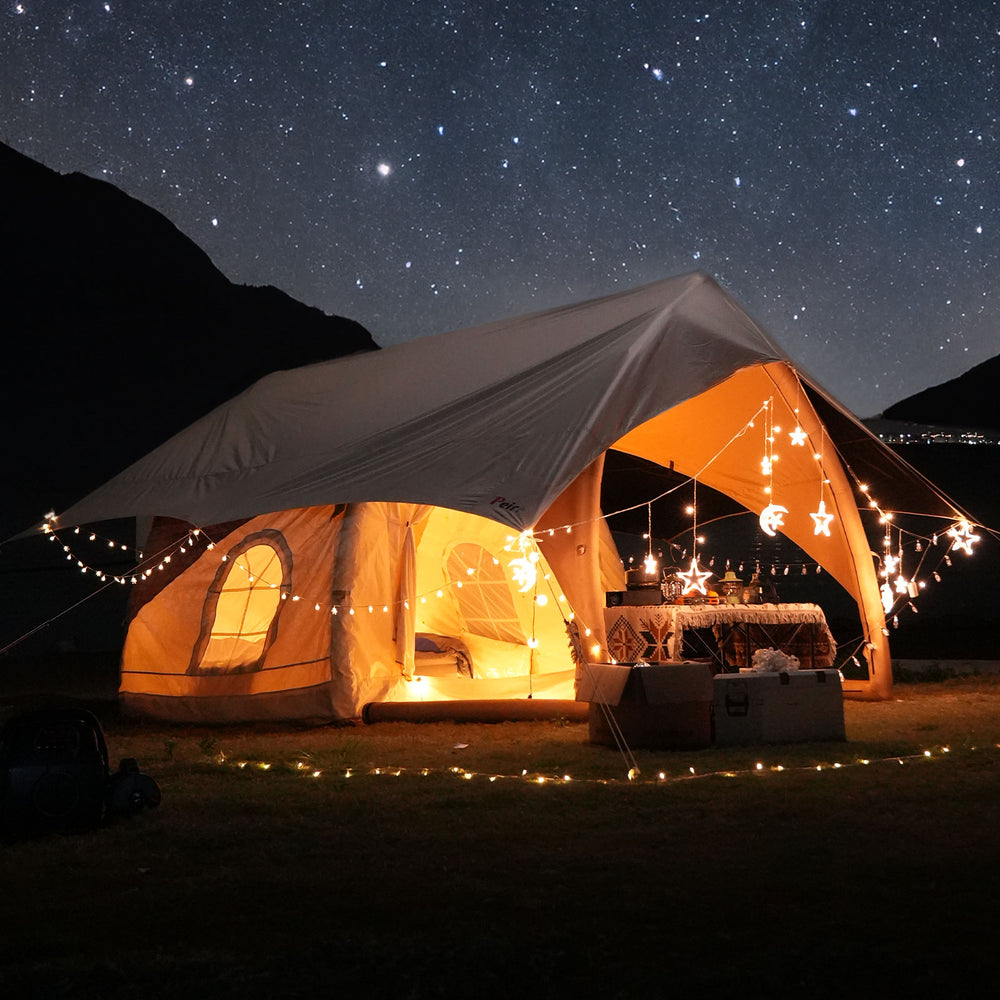
 Peirhw Butterfly-shaped Canopy for Camping
Peirhw Butterfly-shaped Canopy for Camping
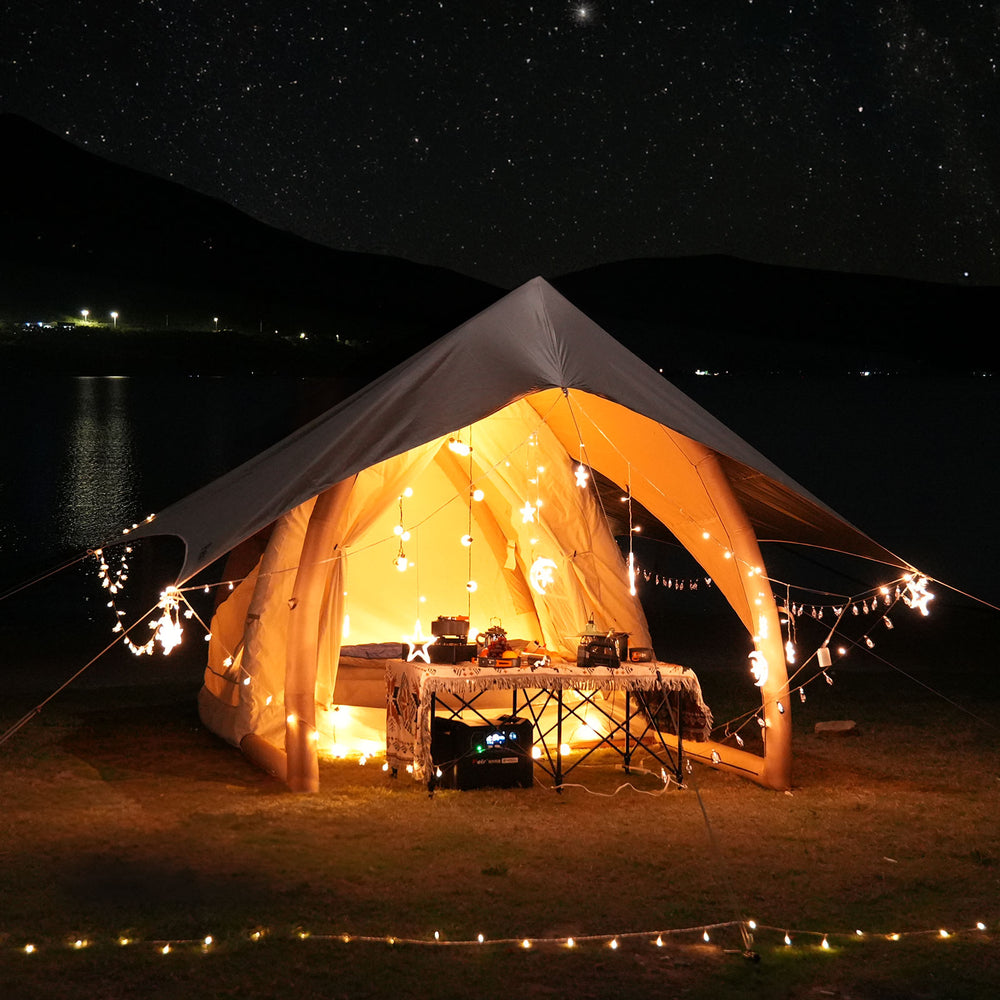 Peirhw Camping Waterproof Canopy (Cannot be Purchased Separately)
Peirhw Camping Waterproof Canopy (Cannot be Purchased Separately)

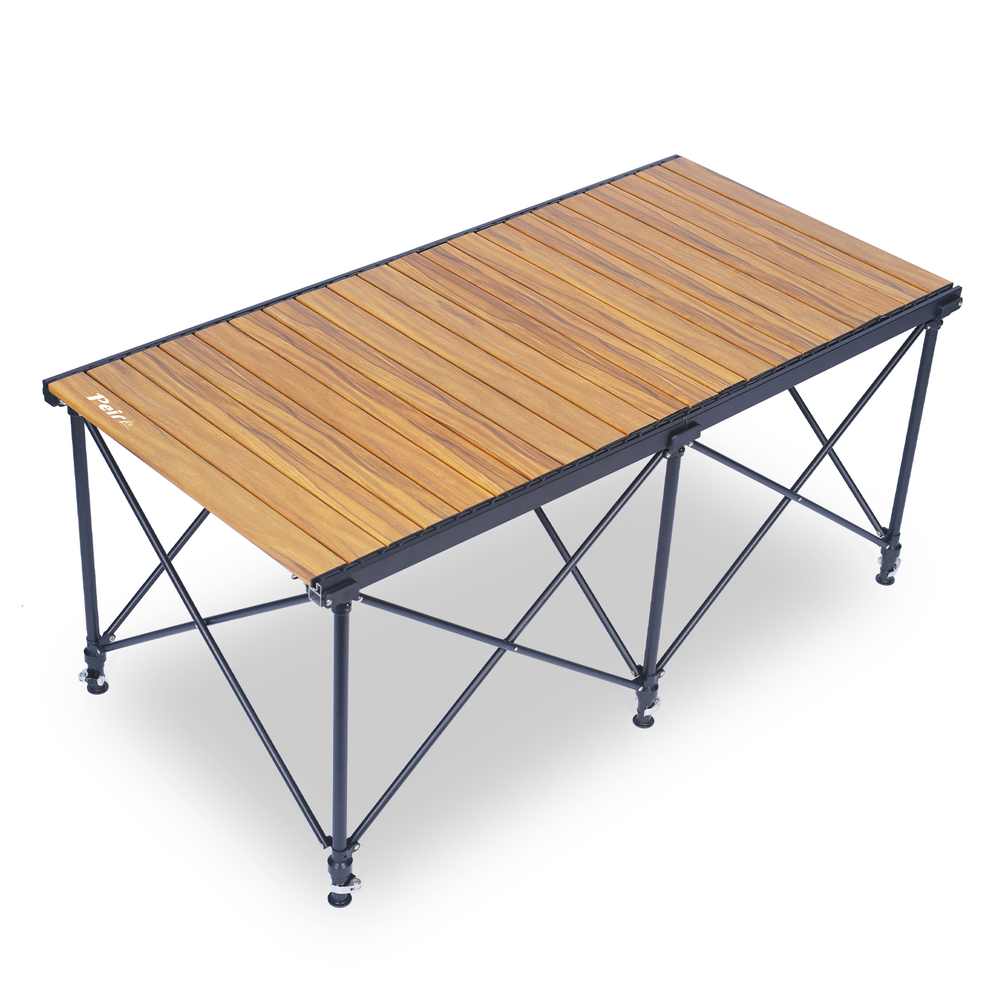
 Peirhw Outdoor Folding Chairs
Peirhw Outdoor Folding Chairs
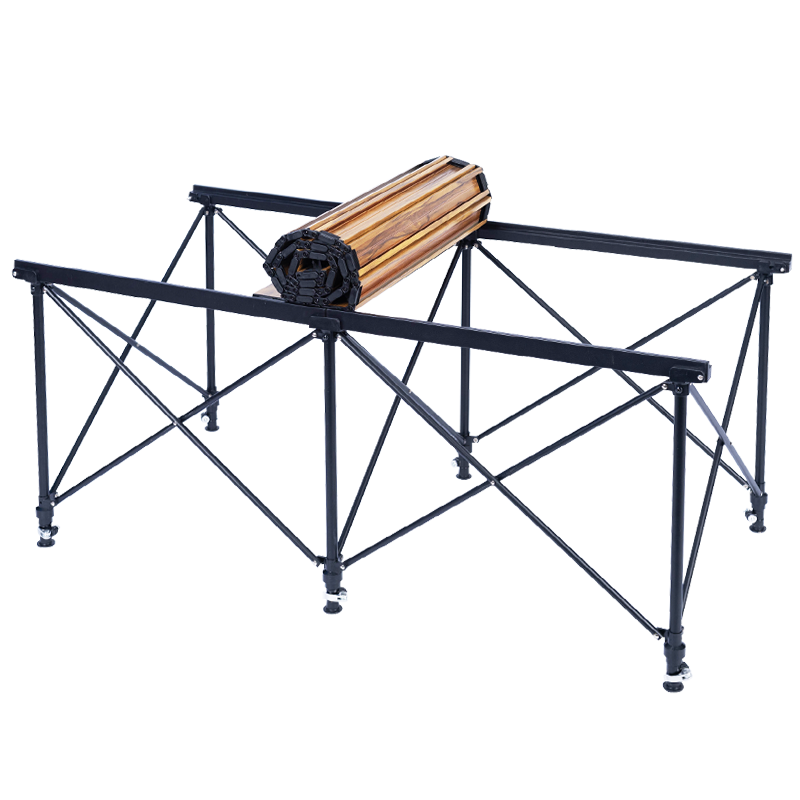 Peirhw Folding Camping Table
Peirhw Folding Camping Table





